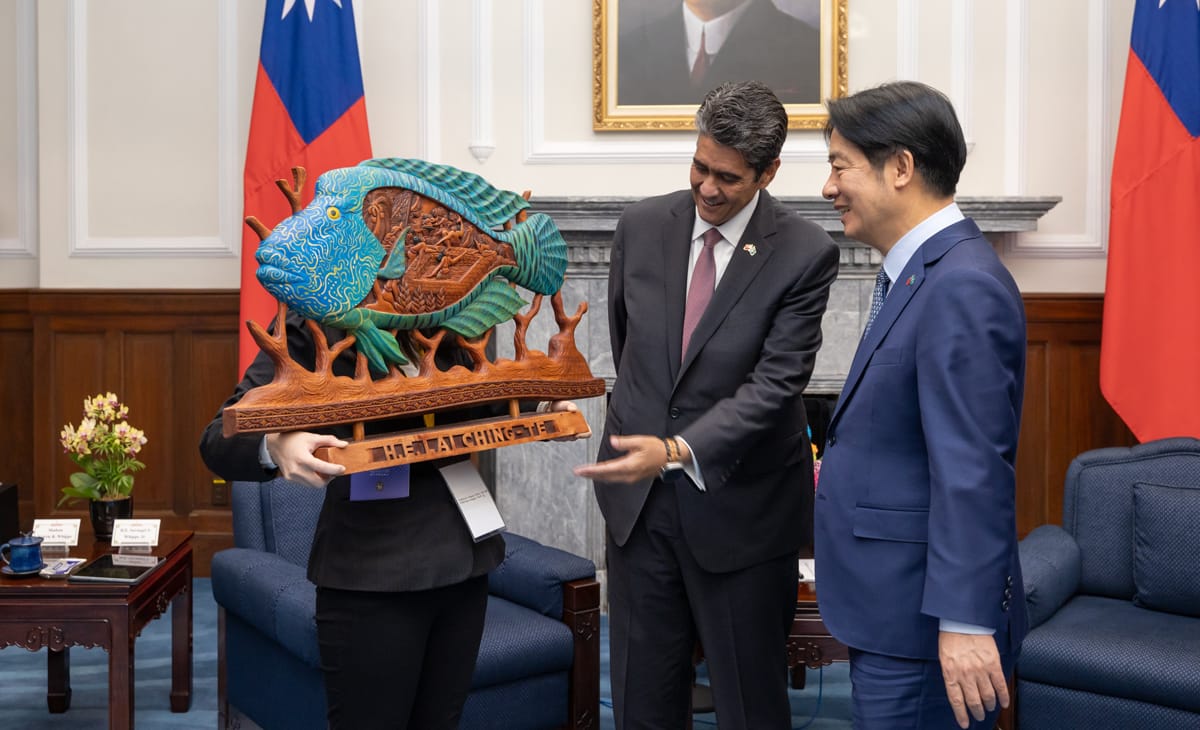Taiwan’s new President, William Lai Ching-te of the Democratic Progressive Party (DPP), Taiwan’s homegrown political party, has taken office this week. In January’s elections, Taiwanese voters elected Lai, the incumbent Vice President, by a clear margin over his two opponents, Chinese Nationalist Party’s Hou You-i, mayor of New Taipei, and Taiwan Peoples Party’s Ko Wen-je, former mayor of Taipei, handing the DPP an unprecedented third term in office.
Lai succeeds Tsai Ing-wen, Taiwan’s first female president, who during eight years in office significantly raised Taiwan’s profile and deepened international partnerships.
Like Tsai, Lai is strongly committed to Taiwan’s democracy and freedoms, as well as protecting the cultural and linguistic diversity of Taiwan’s society, which includes Indigenous peoples of Malayo-Polynesian origin who have lived in Taiwan for more than 5,000 years and, more recently, immigrants from Southeast Asia and around the world. In Monday’s inauguration speech, Lai listed democracy, peace and prosperity as Taiwan’s “national roadmap” linking Taiwan to the world. He called for democracies to unite with Taiwan in a “democratic community” working together to combat disinformation, strengthen resilience and address challenges.
Taiwan’s fate will in many ways determine the character of the region and world in which we live in the period ahead.
Taiwanese peoples’ struggle for democracy dates back to the Japanese colonial period. Post-war, up to 30,000 Taiwanese were killed and countless others persecuted during four decades of authoritarian Chinese nationalist rule known as “White Terror”. Taiwan’s Indigenous peoples have also long fought for political, economic, cultural and linguistic rights and equal opportunity and significant progress has been made since Taiwan’s democratisation in the 1980s. LGBTI+ rights in Taiwan are regarded as the most comprehensive in Asia.
Like in Australia, the commitment to shared democratic values is a defining feature of Taiwan’s society. In 2021 Tsai said, “In this inclusive country, nobody is judged based on when they arrived, nobody is held accountable for the deeds of their ancestors, and nobody is excluded from our shared community because of where they came from. As long as we respect and appreciate this land and what it stands for, Taiwan will always welcome everyone with open arms and bring people together”. In his inauguration speech, Lai added, “So long as we identify with Taiwan, Taiwan belongs to us all – all of the peoples of Taiwan, regardless of ethnicity, irrespective of when we arrived”.
In Australia and around the world, liberal democratic values and the system of internationally agreed rules and norms are currently being tested. Democracies are called upon to demonstrate their value – that they are up to the task, and that the rules-based order can still deliver peace, stability and ever-rising prosperity for citizens.
Taiwan is on the front line of this challenge. Taiwan’s fate will in many ways determine the character of the region and world in which we live in the period ahead.
Taiwan’s success is in the interest of Australia and its partners. Taiwan has a population similar to that of Australia’s and an advanced market economy that is 21st largest in the world. It is a likeminded partner situated on the strategically important first island chain, a geo-economic giant producing over 90 per cent of the world’s advanced computer chips, and key to global trade with more than half of the world’s container ships passing through the Taiwan Strait. Taiwan is also a vibrant democracy in a region with few democracies.
Against significant challenges, including a sustained campaign of economic, diplomatic and military pressure aimed at isolating Taiwan and undermining confidence, the Taiwanese people remain resolute in defending their hard-won democracy and freedoms. As Lai has said, the way to fight attacks on democracy is with more democracy.

As a deeply democratic country with a record of protecting and promoting human rights at home and globally, and as a country with long-standing economic, cultural and people-to-people links with Taiwan, Australia has a stake in democratic Taiwan’s success.
Australia and partners can help keep Taiwan safe by deepening cooperation with Taiwan in areas of common interest – from the clean energy transition, technology and supply chains to building resilience and maritime cooperation – and by helping better enmesh Taiwan with the region and world, letting Taiwanese know that they are not alone. Australia and partners can also help enhance deterrence by continuing to invest in our own democracies and economies, strengthening national capabilities and building public trust.
In this way, we can help maintain the status quo of peace and stability in the Taiwan Strait and the region, encouraging differences to be resolved peacefully through dialogue.

